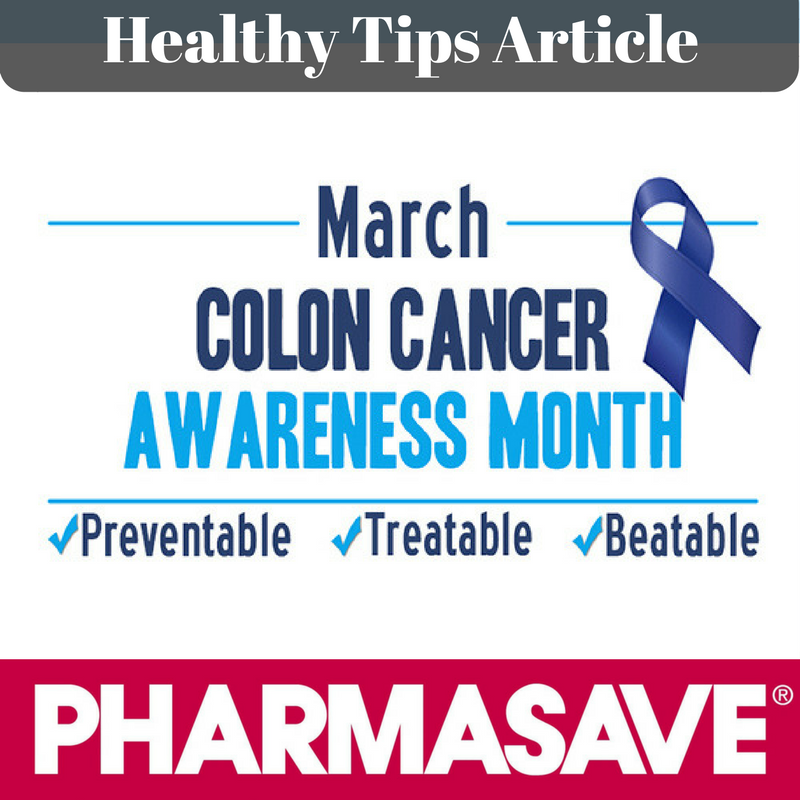Do you know what the risk factors and warning signs are for colorectal cancer (cancer of the lower bowel)? Here’s some important information on risk factors – and on tests that can help screen for colorectal cancer.
Risk factors
- Age: As you age, your risk for colorectal cancer increases. In fact, more than 90% of those afflicted with the condition are over the age of 50, and the majority are 70 or older. This is partly due to the fact that colorectal cancer develops over a period of at least 10 years.
- Diet and lifestyle: A number of studies show that what you eat, as well as how physically active you are, may be linked to your likelihood of developing colorectal cancer. For instance, low-fat, high-fibre diets are associated with a reduced risk. Conversely, diets high in fat, calories, alcohol, and protein, and low in calcium may elevate the risk. Smoking also increases your risk of developing colorectal cancer.
- Family history: As with many other forms of cancer, the odds of getting colorectal cancer go up if a family member, particularly a parent or sibling, has had the disease. While this may be in part to genetic factors, it may also result from living in a similar environment or adopting a similar lifestyle. People with a family history of inherited breast cancer, uterine, or ovarian cancer are also at an increased risk for developing colorectal cancer.
- Polyps: Polyps are growths of tissue that can be found in the colon. These growths can be benign (non-cancerous) or they can go on to become cancerous. It has been shown that removing polyps that have been discovered by rectal exams and colonoscopies can reduce your chances of developing colorectal cancer.
- Inflammatory bowel disease: Ulcerative colitis and Crohn’s disease have been associated with an increased risk of colorectal cancer.
Tests
When a person is diagnosed with colorectal cancer, that generally means they have malignant (cancerous) cells in the tissue of the colon and/or rectum. Doctors are able to make such a diagnosis by administering a variety of tests that analyze the rectum and rectal tissue as well as the blood. Catching colon cancer early with screening can greatly increase your survival. Common tests include:
- Fecal occult blood test (FOBT): A sample of a person’s stool is placed on a card, which is then examined under a microscope to see if there is blood in the stool, a sign of colorectal cancer. Regular FOBT testing is recommended in people aged 50-74 years, since early detection can improve treatment and survival. There are several factors that can give a positive FOBT; therefore, a colonoscopy will usually be performed if you have a positive result.
- Digital rectal exam: A doctor or nurse examines the rectum with a lubricated, gloved finger to feel for any irregularities in the rectum or detect the presence of any polyps.
- Colonoscopy: A colonoscope (a thin, lighted tube) is inserted into the rectum to provide doctors with a comprehensive view of a person’s entire colon and the rectum. The doctors can also take out tissues or polyps (growths of tissue) so that they can be analyzed for a more complete diagnosis.
- Biopsy: Cells or tissues are removed from the body for further examination under a microscope.
- Virtual colonoscopy: A series of X-rays, called computed tomography, are placed together to form a picture of the entire colon to search for any abnormalities. This test is also known as CT colonography.
- Sigmoidoscopy: A sigmoidoscope (a thin, lighted tube) is used to look inside a person’s rectum and lower colon, also called the sigmoid. The sigmoidoscope checks for any abnormalities, including polyps and cancer.
- Barium enema: Barium liquid is injected into the rectum and the colon, allowing doctors to use X-ray technology to examine these areas for potentially cancerous cells or other issues.
Colorectal cancer is the third-most-common cancer and the second-most-common cause of cancer deaths in Canada. Every week, over 400 Canadians are diagnosed with it, and an average of 175 Canadians die of it. However, it is one of the most preventable forms of cancer – it is 95% preventable with scheduled and thorough testing. If it is detected early, it is highly treatable. Find out how lifestyle choices and regular screening tests can significantly cut your risk of this disease.
All material © 1996-2017 MediResource Inc. The contents herein are for informational purposes only. Always seek the advice of your physician or other qualified health provider with any questions you may have regarding a medical condition.


